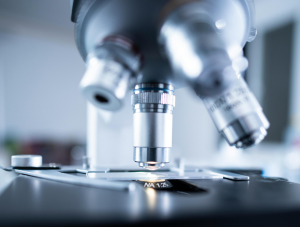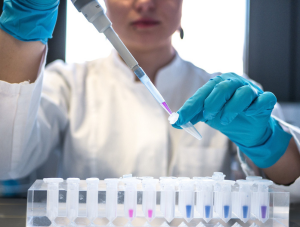Posts by clockworkwp
The Future of Research: Coalitions for Future Impact
The global research and development (R&D) ecosystem is estimated to grow to $1.25T by 2025. Fueled by investments from across the public and private sectors, this rapidly changing arena is becoming increasingly and incredibly diverse. What was once primarily a government-fueled engine of innovation has expanded to encompass businesses, nonprofits, foundation entities, and more. Likewise,…
Read MoreCelebrating 2023’s Progress and Breakthroughs
Since our official launch in 2019, The Karen Toffler Charitable Trust (KTCT) has been providing essential funding and forging meaningful connections to support, promote, and advance the work of researchers who are exploring medical solutions at the furthest edges of science.
Read MoreDr. Julia TCW: Impact update
Solving humanity’s greatest challenges requires bold, visionary researchers who look beyond the traditional confines of science and medicine to create new possibilities. Karen Toffler Charitable Trust fuels the work of these pioneers through our future-focused framework — one that hinges on early-stage research, high-impact ideas, and cross-disciplinary problem-solving. Due to the nascent stages of their…
Read MoreRevolutionizing Lewy Body Dementia Research
The Karen Toffler Charitable Trust (KTCT) is supporting cutting-edge scientists like Dr. LaVoie to explore the uncharted territory of high-risk research. With their funding, Dr. LaVoie has uncovered an exciting new avenue of research that could revolutionize the way we approach Lewy Body Dementia. When Dr. LaVoie was awarded a Grant from the Karen Toffler…
Read MoreThe Future of Research: Powershifts and Implications
The global research and development (R&D) ecosystem is changing rapidly and dramatically. An arena once dominated, fueled, and funded by U.S. federal government organizations like the National Science Foundation, NIH, NASA, Office of Naval Research, and the Defense Advanced Research Projects Agency (DARPA) is now being driven — and bankrolled — by investors from industry,…
Read MoreMBI Rising Stars: Adithya Gopinath
Toffler Scholar Adithya Gopinath’s research explores the connection between the brain and the peripheral immune system in people with Parkinson’s disease with the goal of developing a blood test to diagnose and monitor the disease and evaluate whether treatments are working. Learn more about his research in this article from University of Florida.
Read MoreDeep Learning Algorithm Outperforms Experts in Making Alzheimer’s Diagnosis
About 46.8 million people worldwide were living with dementia in 2015, and this number could double by 2035. Reliably differentiating between normal cognitive aging, mild cognitive impairment, and dementia requires significant clinical acumen from qualified specialists treating memory disorders, yet timely access to memory clinics is often limited for patients and families. Boston University Toffler…
Read MoreAlzheimer’s Disease in Women
UCLA Toffler Scholar Dr. Elizabeth Rose Mayeda was part of the team that presented research that begins to give us insight into why Alzheimer’s disease affects more women than men and why the disease seems to progress more quickly in women’s brains. Learn more about her research in this article from NPR.
Read MoreDAT and TH expression marks human Parkinson’s disease in peripheral immune cells
Published Paper: Adithya Gopinath, et al. With support from The Karen Toffler Charitable Trust, University of Florida Toffler Scholar Adithya Gopinath was able to publish a paper in Nature about his research on Parkinson’s disease. Read the full paper to learn more about the exciting implications of their research in facilitating diagnosis and investigation of…
Read MoreThree UCLA Students Receive Toffler Scholar Awards
Cynthia Beard, Lara Yoon, and Catherine Psaras have earned the Toffler Scholar Award. These three students from the UCLA Fielding School of Public Health were chosen through a competitive submission process led by the epidemiology department. Learn more about these three students and their research in this article from UCLA.
Read More








